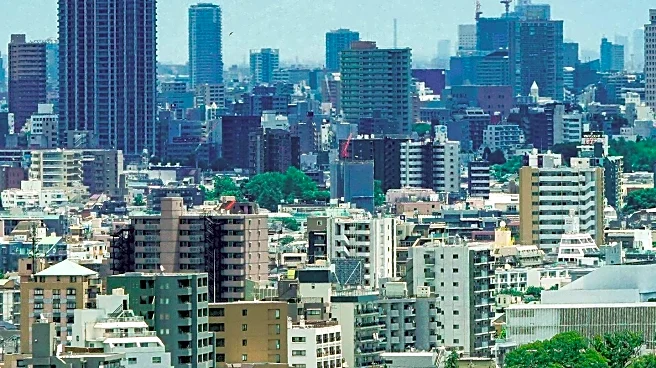What's Happening?
A central Japanese town, Toyoake, has proposed a two-hour daily limit on smartphone usage for its 69,000 residents. The proposal, submitted by the Toyoake municipal government in Aichi, is currently under debate by lawmakers. The initiative aims to address concerns about device addiction and its impact on daily life. Toyoake Mayor Masafumi Koki stated that the limit is intended as a guideline to encourage better screen time management, rather than a strict enforcement. The proposal excludes smartphone use during non-leisure activities such as cooking, exercising, online learning, and e-sports practice. The initiative has sparked debate, with 80% of residents expressing dissatisfaction during a consultation period, although some support the measure.
Why It's Important?
The proposal highlights growing concerns about smartphone addiction and its effects on social behavior and mental health. By encouraging reduced screen time, Toyoake aims to foster healthier lifestyle habits among its residents. This initiative could set a precedent for other municipalities facing similar issues, potentially influencing public policy on digital device usage. The debate underscores the balance between technological convenience and its potential drawbacks, prompting discussions on personal responsibility and community well-being.
What's Next?
If approved, the proposal will be passed in October, with no penalties for non-compliance. The initiative may lead to further discussions on digital device usage regulations in other regions. Stakeholders, including lawmakers, educators, and health professionals, may engage in broader conversations about the impact of technology on society and explore additional measures to promote digital wellness.











